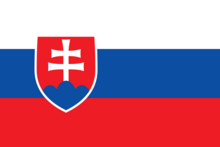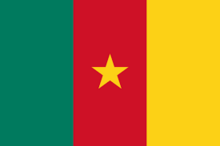- Overview
- Rules of Procedure
- Membership of the Executive Board
- Bureau of the Executive Board
- Ad-Hoc working group on programmatic, budgetary and administrative matters
- Ad-Hoc working group on working methods
- Ad-Hoc working group on stakeholder engagement policy
- Briefings by the Executive Director of UN-Habitat
- Key Documents
- Previous sessions of the Executive Board
Overview
The Executive Board aims to increase the oversight of UN-Habitat operations by Member States and to strengthen UN-Habitat’s accountability, transparency and effectiveness. This body will ensure greater efficiency in decision-making, help to build trust and attract sufficient, sustainable and predictable funding. It comprises 36 member states elected by the UN-Habitat Assembly and convenes three times a year to undertake the following:
i) Oversee the implementation of the normative and operational activities of UN-Habitat;
ii) Ensure accountability, transparency, efficiency and effectiveness;
iii) Approve and oversee the implementation of the annual programme of work and budget and of the resource mobilization strategy, in accordance with the strategic plans and the political guidelines provided by the UN-Habitat Assembly;
iv) Adopt decisions, under its mandate, on, among other things, programmatic, operational and budgetary issues for the adequate and effective implementation of the resolutions and other decisions adopted by the UN-Habitat Assembly;
v) Guide and support efforts to finance UN-Habitat;
vi) Oversee the compliance of UN-Habitat with evaluations and support auditing functions;
vii) Collaborate with the executive boards of other United Nations agencies, in accordance with the Secretary-General’s management reforms.
Membership of the Executive Board
A. Africa (10 seats)
Algeria, Burkina Faso, Burundi, Cameroon, Djibouti, Egypt, Mozambique, Nigeria, Somalia, Zimbabwe
B. Asia-Pacific (8 seats)
China, Indonesia, Iran, Iraq, Japan, Pakistan, Republic of Korea, United Arab Emirates (2025-2027) and Malaysia (2027-2029)
C. Eastern Europe (4 seats)
Azerbaijan, Russian Federation, Slovak Republic, Ukraine
D. Latin America and the Caribbean (6 seats)
Barbados, Brazil, Colombia, Mexico, Peru, Uruguay
E. Western Europe and Others (8 seats)
France, Germany, Portugal, Spain, Sweden, Türkiye, Vacant, Vacant
2025 – 2026 Bureau of the Executive Board of UN-Habitat





Geographical distribution distribution of officers of the Bureau since 2019
2024
First session of the Executive Board
Chair: African States (Kenya – November 2023 to April 2024)
(Nigeria – May 2024 to March 2025)
Vice-Chairs: Latin American and Caribbean States (Brazil)
Western European and other States (France)
Eastern European States (Poland)
Rapporteur: Asian States (Pakistan)
2022
Second session of the Executive Board
Chair: Latin American and Caribbean States (Brazil)
Vice-Chairs: African States (Kenya)
Asian States (Pakistan)
Eastern European States (Poland)
Rapporteur: Western European and other States (France)
2021
First session of the Executive Board
Chair: Eastern European States (Poland)
Vice-Chairs: African States (Egypt)
Asian States (Pakistan)
Western European and other States (France)
Rapporteur: Latin American and Caribbean States (Chile)
2020
Second session of the Executive Board
Chair: Asia-Pacific States (Iran, Islamic Republic of)
Vice-Chairs: Latin American and Caribbean States (Chile)
African States (Egypt)
Western European and other States (France)
Rapporteur: Eastern European States (Serbia)
2019
First session of the Executive Board
Chair: Western European and other States (United States of America)
Vice-Chairs: Latin American and Caribbean States (Argentina)
Asia-Pacific States (China)
Eastern European States (Russian Federation)
Rapporteur: African States (Malawi)
Bureau meetings of the Executive Board
Second Bureau meeting of the Executive Board 16 April 2026
First Bureau meeting of the Executive Board 13 February 2026
PREVIOUS BUREAU MEETINGS OF THE EXECUTIVE BOARD
Eighth Bureau meeting of the Executive Board 19 November 2025
2026
83rd Meeting of the Ad Hoc Working Group on Programmatic, Budgetary and Administrative Matters 9 November 2026
82nd Meeting of the Ad Hoc Working Group on Programmatic, Budgetary and Administrative Matters 4 November 2026
81st Meeting of the Ad Hoc Working Group on Programmatic, Budgetary and Administrative Matters 21 October 2026
80th Meeting of the Ad Hoc Working Group on Programmatic, Budgetary and Administrative Matters 7 October 2026
79th Meeting of the Ad Hoc Working Group on Programmatic, Budgetary and Administrative Matters 23 September 2026
78th Meeting of the Ad Hoc Working Group on Programmatic, Budgetary and Administrative Matters 10 June 2026
77th Meeting of the Ad Hoc Working Group on Programmatic, Budgetary and Administrative Matters 1 April 2026
76th Meeting of the Ad Hoc Working Group on Programmatic, Budgetary and Administrative Matters 25 March 2026
75th Meeting of the Ad Hoc Working Group on Programmatic, Budgetary and Administrative Matters 11 March 2026
74th Meeting of the Ad Hoc Working Group on Programmatic, Budgetary and Administrative Matters 25 February 2026
73rd Meeting of the Ad Hoc Working Group on Programmatic, Budgetary and Administrative Matters 18 February 2026
2025
72nd Meeting of the Ad Hoc Working Group on Programmatic, Budgetary and Administrative Matters 17 November 2025
71st Meeting of the Ad Hoc Working Group on Programmatic, Budgetary and Administrative Matters 12 November 2025
70th Meeting of the Ad Hoc Working Group on Programmatic, Budgetary and Administrative Matters 3 November 2025
69th Meeting of the Ad Hoc Working Group on Programmatic, Budgetary and Administrative Matters 15 October 2025
68th Meeting of the Ad Hoc Working Group on Programmatic, Budgetary and Administrative Matters 1 0ctober 2025
67th Meeting of the Ad Hoc Working Group on Programmatic, Budgetary and Administrative Matters 19 March 2025
66th Meeting of the Ad Hoc Working Group on Programmatic, Budgetary and Administrative Matters 12 March 2025
65th Meeting of the Ad Hoc Working Group on Programmatic, Budgetary and Administrative Matters 5 March 2025
64th Meeting of the Ad Hoc Working Group on Programmatic, Budgetary and Administrative Matters 24 February 2025
63rd Meeting of the Ad Hoc Working Group on Programmatic, Budgetary and Administrative Matters 17 February 2025
62nd Meeting of the Ad Hoc Working Group on Programmatic, Budgetary and Administrative Matters 10 February 2025
61st Meeting of the Ad Hoc Working Group on Programmatic, Budgetary and Administrative Matters 3 February 2025
2024
60th Meeting of the Ad Hoc Working Group on Programmatic, Budgetary and Administrative Matters 2 December 2024
59th Meeting of the Ad Hoc Working Group on Programmatic, Budgetary and Administrative Matters 27 November 2024
58th Meeting of the Ad Hoc Working Group on Programmatic, Budgetary and Administrative Matters 20 November 2024
57th Meeting of the Ad Hoc Working Group on Programmatic, Budgetary and Administrative Matters 13 November 2024
56th Meeting of the Ad Hoc Working Group on Programmatic, Budgetary and Administrative Matters 16 October 2024
55th Meeting of the Ad Hoc Working Group on Programmatic, Budgetary and Administrative Matters 9 October 2024
54th Meeting of the Ad Hoc Working Group on Programmatic, Budgetary and Administrative Matters 23 September 2024
53rd Meeting of the Ad Hoc Working Group on Programmatic, Budgetary and Administrative Matters 11 September 2024
52nd Meeting of the Ad Hoc Working Group on Programmatic, Budgetary and Administrative Matters 3 July 2024
- Progress towards the Strategic Plan 2026-2029 following deliberations of the Member States at their second retreat on 30 May 2024
- Progress towards the Strategic Plan 2026-2029 Revised elements of the Strategic Plan
51st Meeting of the Ad Hoc Working Group on Programmatic, Budgetary and Administrative Matters 29 April 2024
50th Meeting of the Ad Hoc Working Group on Programmatic, Budgetary and Administrative Matters 29 April 2024
- HSP/EB.2024/CRP.X - Technical inputs into the draft decisions towards the first session of 2024 of the Executive Board
- Responses to questions raised by Member States related to the Sustainable Urban Resilience for the Next Generation (SURGe) initiative during the 49th and 50th meetings of the ad hoc working group on programmatic, budgetary and administrative matters
49th Meeting of the Ad Hoc Working Group on Programmatic, Budgetary and Administrative Matters 8 April 2024
48th Meeting of the Ad Hoc Working Group on Programmatic, Budgetary and Administrative Matters 13 March 2024
- Report of the Executive Director on the implementation of Resolutions adopted by the United Nations Habitat Assembly
- Presentation made by Secretariat
47th Meeting of the Ad Hoc Working Group on Programmatic, Budgetary and Administrative Matters 11 March 2024
46th Meeting of the Ad Hoc Working Group on Programmatic, Budgetary and Administrative Matters 24 January 2024
38th meeting - 8 March 2023
29th meeting – 21 September 2022
Coming soon....
Coming soon....
Meeting - 25 March 2024
Agenda item 2 - Secretariat Note on objection to accreditation of two CSOs to the UN-Habitat Assembly
Agenda item 3 - Overview of process and progress to-date by Secretariat
Agenda item 4 - Continuation of the review of the draft stakeholder engagement policy, Second Reading, Version of May 2018
Coming soon....
Coming soon....
Coming soon....